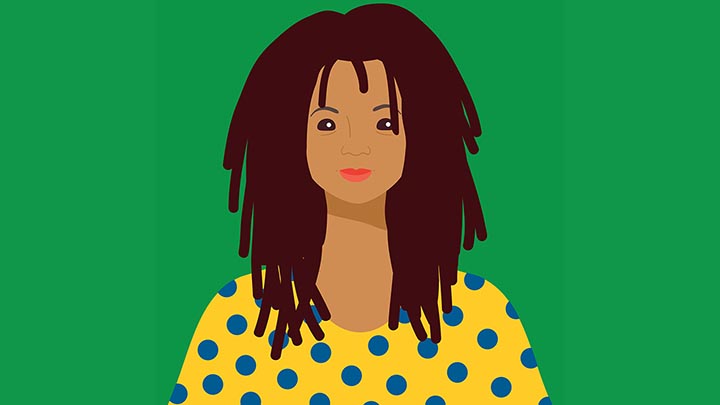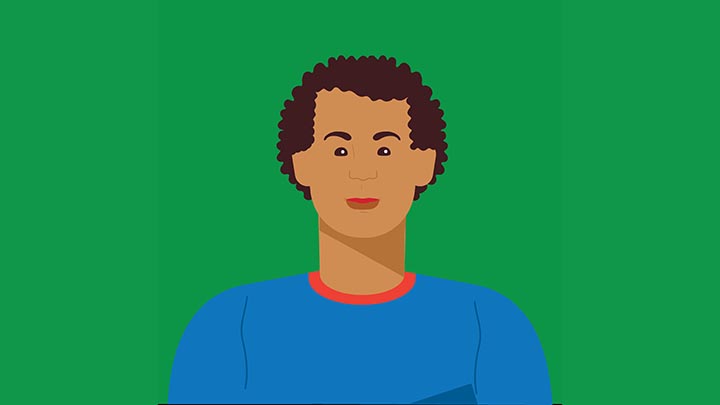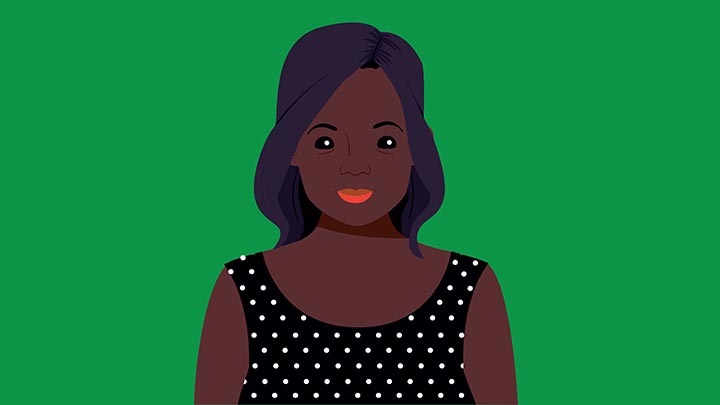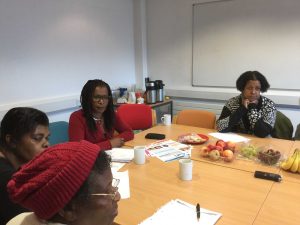
Get involved
Co-production is a key part of CaFI. We have worked closely with African and Caribbean service users, their families, community members, and healthcare professionals throughout the process of developing CaFI, and they continue to be involved throughout the evaluation.
There are several ways for service users, families, volunteers and professionals to get involved with the CaFI study.

Service users and families
Find out more about CaFI therapy and how to sign up at your local CaFI Active NHS Trust.

Professionals
Refer service users to the study and become a CaFI Advocate.

Volunteers
Volunteer as an allocated Family Support Member or research assistant.

Experts by experience
Opportunities for members of the African or Caribbean community affected by psychosis.
More about involvement and engagement
Patient and public involvement and engagement (PPIE) is when researchers work with ordinary people to produce better research. In the CaFI study, we work with people who use services, carers, and other community members to help shape our research and how we share results.
We have a Research Advisory Group (RAG) and CaFI consultants, including service users, carers and community members who provide valuable feedback on things like resources and study information.
We also have researchers working on the study from African and Caribbean communities.
Benefits for patients and the public
- Opportunities to share their experiences to make a real difference.
- Meeting and working with others who have similar experiences.
- A sense of empowerment.
- Developing confidence.
- Financial payment for contributions.
- New skills for professional and personal development.
Benefits for researchers
- Providing additional viewpoints to that of researchers and medical professionals with their insider perspective.
- Making sure research is relevant and meets the needs and priorities of service users and those who care for and support them.
- Ensuring people sign up and continue to participate in the research.
- Improving participants’ experiences.
- Assisting with producing information in a way everyone can understand.
To see co-production in action, please see this paper published with Reverend Paul Grey, one of our primary PPIE consultants, on CaFI feasibility: An Assets-Based Approach to Co-Producing a Culturally Adapted Family Intervention (CaFI) with African Caribbeans Diagnosed with Schizophrenia and Their Families (PDF).
More information about co-production in research can also be found on the INVOLVE website: Co-production in action (PDF).
Past PPIE examples
CaFI (ongoing study)
In the most recent phase of the CaFI study, we spent lots of time speaking to people, including those from African and Caribbean backgrounds.
Video
We made a video to show our experiences of being in the CaFI pilot.
In this video, we speak to people including:
- Yvonne (RAG member)
- Naomi (Family Suppport Member)
- Maudline (Family Member)
- Rebecca (CaFI service user)
- Lee (CaFI therapist)
Logo workshop
 In February 2019, we organised a workshop with service users, relatives, carers and community members to design the CaFI logo. The workshop was run with an organisation called HerArt CIC. The event took place in Manchester.
In February 2019, we organised a workshop with service users, relatives, carers and community members to design the CaFI logo. The workshop was run with an organisation called HerArt CIC. The event took place in Manchester.
Resource development day
In September 2019, we hosted a day workshop with key stakeholders. This included mental health professionals, family, and carers. We used group work to make the therapy resources better. These will be used during the therapy sessions.
Interviews and focus groups
In 2019 and early 2020, we did interviews and focus groups in Manchester, the Midlands, Southampton and London. These were with service users, carers, family members and community members.
We spoke to over 50 people in this research. We did this to get feedback on the CaFI therapy model. We used these to make sure the therapy is culturally appropriate and suitable for African people too.
Launch events
In 2019 and 2020, we also hosted launch events where we invited members of the local community. These were public events, so anyone could attend. These were in Manchester, Birmingham, and Southampton.
Digital workshops
In late 2020, we hosted a workshop with service users, carers, friends and family over Zoom. We showed participants the new CaFI Digital platform to get feedback.
This was a success and we had some amazing suggestions and compliments about the work.
CaSPER (completed study)
Focus groups
 For the CaSPER study, we ran five focus groups with Caribbean people with experiences of psychosis, as well as their family members, carers and other community members.
For the CaSPER study, we ran five focus groups with Caribbean people with experiences of psychosis, as well as their family members, carers and other community members.
We explored what content the CaSPER e-learning materials should have, and we also discussed the feel of the resource. This feedback was used to design the resource, and this has also gone on to inform CaFI.
We worked with creatives and voice actors to produce audio narrations about a fictional character named Jenny who is diagnosed with schizophrenia. Jenny describes her experience with hospital admission and recovery, and we also hear from her family about how they felt during this process.
We are currently working with the National Institute for Health Research (NIHR) to produce animation films from these audio narrations.
